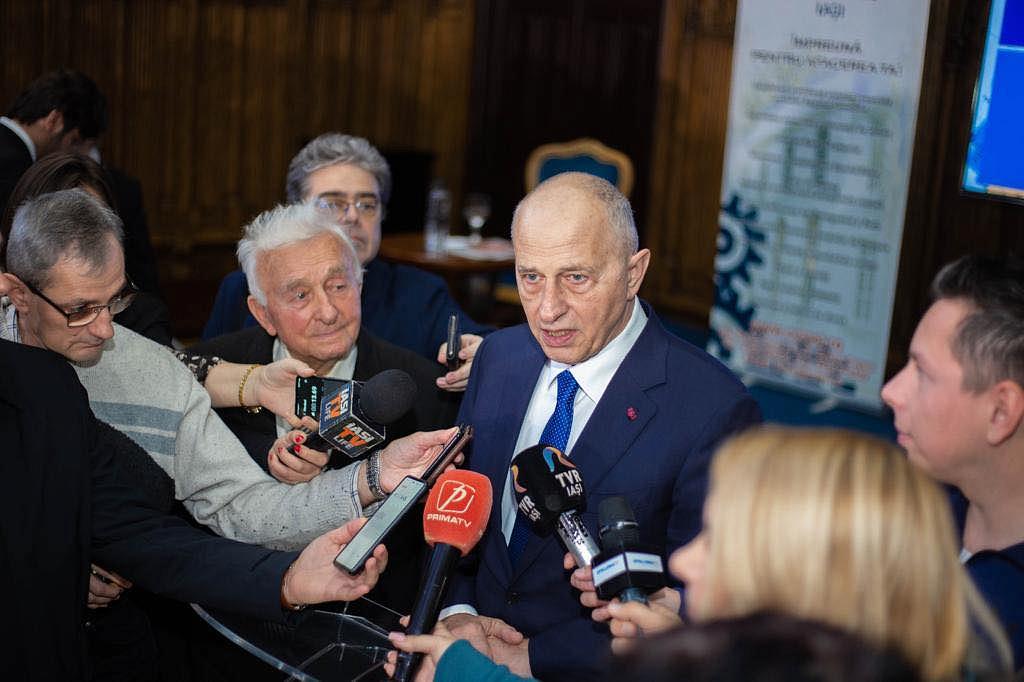Romanian presidential hopeful Mircea Geoană plagiarized doctoral thesis, journalist says



Emilia Şercan, a Romanian journalist specializing in rooting out plagiarized theses written by major political figures in the country, recently published an article arguing that Mircea Geoană, deputy secretary general of NATO and presidential hopeful, plagiarized his doctoral thesis. In his turn, Geoană linked the story's publishing timing to his possible candidacy in the presidential elections and said the accusations are false.
Geoană “plagiarized by translation, without any attribution and without quotation marks, dozens of pages from the annual reports presented to the U.S. Congress by American Presidents Bill Clinton and George W. Bush,” according to the article published by Şercan in PressOne.
The presidential hopeful defended his thesis in 2005 after no less than 12 years of doctoral studies at the Bucharest Academy of Economic Studies, one of the most important universities in Romania.
The thesis concerned Romania's integration into Euro-Atlantic structures but dedicated “dozens and dozens of pages to the evolution of the American economy,” leaving out key moments of Romania’s NATO and EU membership. This is even more unusual as Geoană served as Romania's ambassador to Washington and later as Romania's foreign minister.
Moreover, according to Emilia Şercan, upcoming articles will show that Geoană’s thesis presents elements of plagiarism.
“At least 78 pages out of the 279 total pages of the work contained plagiarized content – text, graphics, and tables – taken without attribution from various sources,” according to the PressOne article.
Most of the content identified as plagiarized by the deputy secretary general of NATO comes from three official documents, all issued by the Presidential Administration of the United States. Specifically, these are three reports, all titled the same: Economic Report of the President. The first was presented to the U.S. Congress in February 1999 by president Bill Clinton, and the other two by president George W. Bush in February 2002 and February 2003, respectively. None of these works are cited in Mircea Geoană's doctoral thesis and are not listed in the bibliography.
In reply, Mircea Geoană posted a message on Facebook saying that the accusations concerning a thesis defended almost 20 years ago must be seen in the context of his possible candidacy in the presidential elections.
“Today, I find myself accused of plagiarizing the doctoral thesis I completed 20 years ago. Why today? Probably because some are scared of the discussions in the public space about my possible candidacy. Experts in the field have already publicly commented on a thesis I worked on for years. When multiple anti-plagiarism software programs indicate no similarities, and yet someone comes up with a false accusation, I can only think of ill-intent or bad faith,” Mircea Geoană said.
“I will not allow anyone, for exclusively electoral reasons and, obviously, politically motivated, to question a life of work and studies done at the highest level of probity and professionalism," he added.
Mircea Geoană’s candidacy for president was recently put forth by the "Romania Reborn” NGO. The organization, through university professor Dumitru Borţun, said Geoană could resign from his position after the NATO summit in Washington, which will take place from July 9-11, and then run for president.
(Photo source: Mircea Geoana on Facebook)